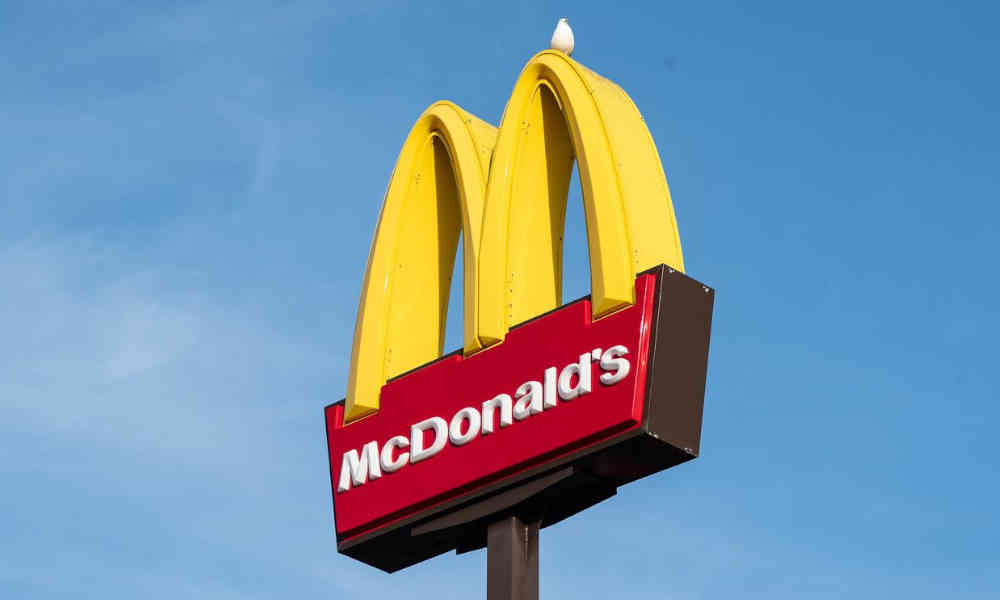The following are common myths about McDonald’s that are not true. First, chicken nuggets are not pink slime. Second, Burgers don’t have worms in them. Third, eggs in a McMuffin are not real. And finally, burgers don’t rot. You’ll be glad you read this article. If you believe any of these myths, don’t let them ruin your McD’s visit.

Chicken nuggets aren’t made from pink slime
It is true that McDonald’s chicken nuggets are not made of pink slime. The rumors that pink slime is a byproduct of mechanically separating meat from bones and organs are untrue. In fact, the meat that is used in chicken nuggets is 100% pure chicken. It is not processed or treated with ammonia, as many other hamburgers and burgers are.
The truth behind the McDonald’s chicken nuggets is much simpler. The chicken nuggets are made from white meat from the breast and pectoral muscles. Other parts of the chicken are mixed in. The meat is mixed with egg white and vegetable oil to create a breaded disc. The breading makes the meat stick together but does not actually contain pink slime.
In fact, they’re made from white meat, that’s USDA-inspected. However, in the United States, the nuggets are fried before being coated in sauce. American chicken nuggets absorb more oil than their British counterparts. As a result, the chicken nuggets do not have pink slime in them. While pink slime was once a common problem in fast-food restaurants, McDonald’s has changed the way chicken nuggets are made. In 2003, the chain decided to stop using mechanically separated chicken and use white meat.
The same goes for other types of chicken. While chicken nuggets are made from white meat, they are still processed with high amounts of filler ingredients and unhealthy fats. They also contain a lot of preservatives, which can lead to obesity and heart disease. And as you can see, this chicken isn’t exactly lean, either. You should avoid chicken nuggets if you want to be healthy.
Burgers aren’t full of worms
One urban legend that has circulated over the years is that McDonald’s burgers contain worms. While this claim could be true, it would be a huge public relations nightmare, and the economics of such a change would be questionable, at least for the short term. Worms would cost much more per pound than beef, and they would definitely not be cheap.
A four-year-old in England reportedly found a worm in a chicken nugget. McDonald’s is investigating whether the worm was a blood vessel or a piece of fat, but it’s not related to the recent outbreak of “parasitic roundworm disease.”
A McDonald’s burger won’t go bad as fast as a ground beef patty. That’s because the meat inside doesn’t have much moisture. Unlike raw meat, cooked hamburgers tend to dry out before rotting. And while they may not have worms, they’re still full of unhealthy fat and preservatives. So if you’re worried about the food in your burger, don’t worry. The burgers at McDonald’s aren’t full of worms or bugs, but they’re still pretty healthy and don’t have worms either.
Despite these concerns, McDonald’s has launched an informational campaign to clear up the myth surrounding the food industry. They’ve invited a crew from the Good Morning America show into their California plant to film their food production processes. The campaign is called ‘Our Food. Your Questions’ and invites the public to submit questions through social media and ask their own questions about the company’s products.
Eggs in a McMuffin aren’t real
Despite claims to the contrary, eggs in a McMuffin are made from fresh egg yolks. Rather than using liquid egg mixtures, McDonald’s uses fresh eggs. The eggs are not cooked in water but rather in metal egg rings that keep the eggs in their correct shape. The liquid that is left is not made of fresh eggs but from other ingredients.
If you’re worried about the high sugar and fat content of the Egg McMuffin, there are some things you can do to avoid them. For example, high-fructose corn syrup contains sugars that deplete the body with essential minerals and vitamins. It also increases food cravings and promotes obesity. Another unhealthy ingredient used in the McMuffins is DATEM, or diacetyl tartaric acid ester of monoglycerides. This is an approved dough conditioner by the FDA but has been linked to heart muscle fibrosis and the growth of adrenal glands in animals.
The ingredients of McDonald’s Egg McMuffin are scary. Instead of fresh eggs, the food chain uses liquid margarine (partially hydrogenated soybean oil), salt, and mono and diglycerides. The melted American cheese cooks on the English muffin quickly, which produces a “sauce” for the sandwich. If you’re wondering if McDonald’s Eggs in a McMuffin is healthy, consider ordering a kids’ meal instead.
Burgers don’t rot
Despite the fact that McDonald’s burgers are not made with all-natural ingredients, they don’t rot. That’s the result of special ingredients used in the preparation of McDonald’s burgers. If you’re wondering how this can be possible, read on to discover what the real answer is.
Despite the fact that McDonald’s hamburgers don’t rot, it is unlikely that the burgers are truly shelf-stable. One theory is that the patties have high surface-to-volume ratios, which ensure that they won’t rot. Another possibility is that they’re cooked at high temperatures in a clean food-safe environment, which helps them to remain relatively free of decay agents.
The hamburgers at McDonald’s are prepared in a ventilated environment. The cooking process would have killed any mold spores present. Moreover, the buns at McDonald’s are similar to those at a store. Moreover, the patties contain no preservatives. As a result, McDonald’s burgers don’t rot, even when they’re stored at high temperatures.
What makes McDonald’s burgers not rot is their ingredients. These burgers contain only a patty of 100% beef, onions and pickles, tomato ketchup, and mustard. The buns have no parasitic roundworms. In fact, they’re not even made of worms! Instead, they’re made of finely-textured beef that is thinner and tastier than regular beef.
Burgers aren’t made from slime
The latest controversy over McDonald’s hamburgers is over the use of “pink slime” in the patties. The meat is actually inspected by the USDA and certified as 100% beef. However, the company uses a meat-based filler that is made of beef trimmings, which are then treated with ammonia and ground into a pink paste. This process makes the meat pliable and juicy, yet it is still cheaper than other types of beef.
Despite bad rumors about the McRib, this fast-food chain doesn’t use any slime in its burgers. The process of making a McRib is unique because the meat is sliced into bricks rather than being ground into a patty-form. This process makes the meat patty firm enough to resist mold and bacteria but not so juicy that it spoils.
The company’s recent marketing campaign is a response to the claims that the burgers are made from beef trimmings. In 2013, the fast-food giant began removing artificial preservatives from its chicken nuggets. This move was made possible because Shake Shack had pioneered the better burger space. In fact, the change resulted in a 40% increase in Quarter Pounder sales within a year. However, in spite of the huge increase in burger sales, the controversy over the real patty is far from over.
McDonald’s uses natural beef flavor
Many consumers have wondered if McDonald’s uses natural beef flavor in its french fries. In 2001, the company was sued by consumers who claimed that the fries were vegetarian or vegan. Despite this, McD’s still uses natural beef flavor in its fries. In a recent statement, the company clarified on its website that the fries are not vegan or vegetarian. Despite this controversy, McDonald’s continues to use natural beef flavor in its french fries.
The fries at McDonald’s do contain beef tallow, but this is an insignificant amount. The fries themselves are made with potato and canola oils in Australia, so they contain small amounts of beef extract. Other ingredients found in the fries include sodium metabisulphite and an antioxidant called Vitamin E. Sadly, McDonald’s still uses beef tallow in its fries, but it’s unlikely that consumers would know it’s in their food.
Even though potatoes are not technically vegan, McDonald’s fries contain natural beef flavor. While they’re not made with beef, the fries’ taste is close enough to the real thing that many people can’t tell the difference. But they still have to be prepared with dairy-free eggs, which may cause digestive problems for some people. Fortunately, there are other options for vegans. Thankfully, many fast-food chains are now vegan-friendly.

